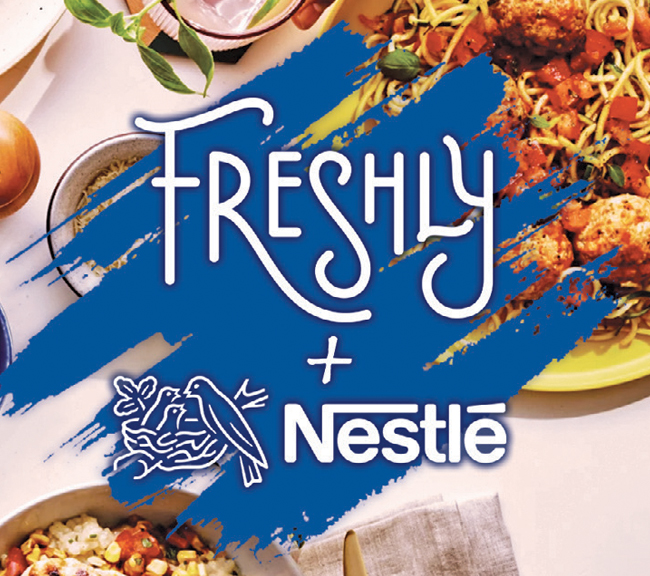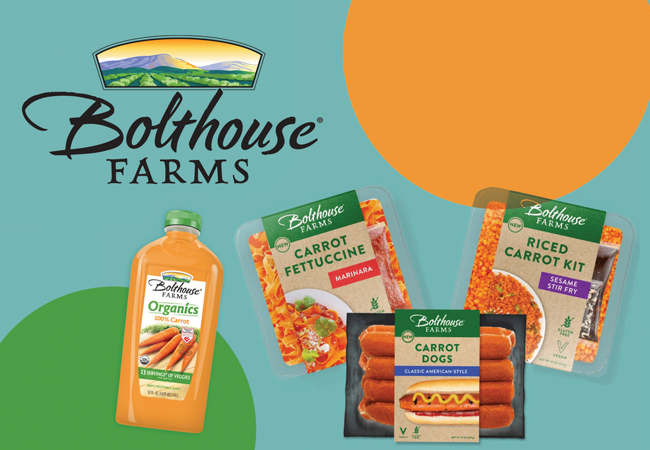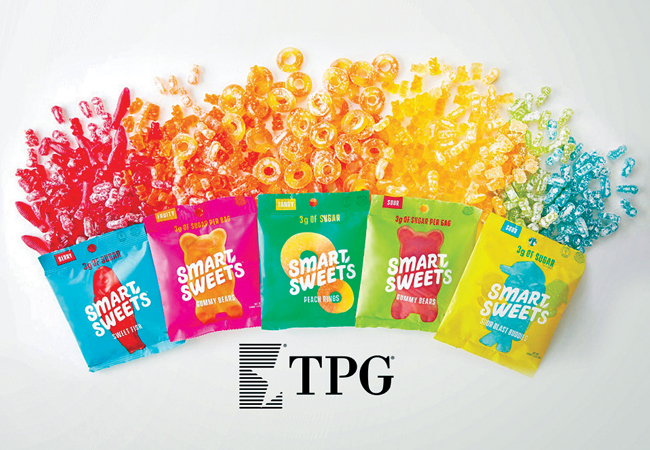NOSHscape: The Latest Food Brand News
Mars Acquires KIND
Roughly three years after it invested in the upstart brand, snack company Mars Incorporated announced in November that it had acquired KIND Snacks. Terms of the deal were not disclosed but sources told The New York Times that the agreement valued KIND at roughly $5 billion.
According to a release, Mars acquired KIND North America, which now has “joined” KIND International to form one organization operating across 35 countries. The move comes almost exactly three years after Mars placed a minority investment in KIND, a deal which gave Mars the rights to “lead the growth of the business” outside of the US and Canada. At that time, The New York Times reported that deal had a $4 billion valuation.
KIND founder and executive chairman Daniel Lubetzky will play a “key role” in the future development of the company, which will operate as a “distinct and separate business” within Mars, according to the release. Lubetzky will maintain a financial stake in KIND; however, the majority of his shares were already previously donated to charity. Over the past years Lubetzky has built his own presence outside the food business, joining TV show Shark Tank as a guest judge and becoming an outspoken advocate for racial and social justice equality. The deal, he said, will set KIND up to continue his legacy.
“We are now well positioned to further advance our efforts and continue building a foremost health and wellness platform,” Lubetzky said in a release. “As we said in 2017, Mars is a company that shares KIND’s passion for business as a force for good, and I am confident that together, we will be able to make our small contribution to make this world a little kinder.”
Prior to the Mars investment, KIND had a mixed relationship with fundraising partners; VMG Partners invested in the brand in 2008, but eventually sold its shares back to the snack company in 2014, a transaction that reportedly valued the company at $728.5 million.
Since announcing its partnership with Mars, KIND has rapidly grown its product portfolio — expanding into the freezer set (with frozen bars and bowls), confection (KIND Bark), functional foods (KIND Energy bars), and breakfast (KIND oatmeal and cereals). The company also made its first acquisition last year, picking up Creative Snacks Co, a producer of nut clusters, trail mixes, granolas, and pretzels. Mars meanwhile expanded the brand into countries including China, Germany and France.
Lubetzky told The New York Times that KIND’s annual sales have reached $1.5 billion in 2020.
As the company has transitioned from a fruit and nut bar brand to a healthy snacking platform, CEO Mike Barkley told NOSH earlier this year that its new products will always lead with a “nutrient-dense food recommended for daily consumption.”
In a LinkedIn post last year, Lubetzky added that KIND would only launch products that would “meaningfully elevate the consumer experience,” rather than me-too products. To hone its innovation, KIND has also adopted a new distribution strategy, launching new category entries in test markets before national rollouts, doing so with its frozen and bark products (both developed in partnership with Mars) last year before going national earlier this year.
The company has been mission oriented from the start, distilling it into the “KIND Promise”: a pact, that among other tenets, the company will make sure that the first and predominant ingredients in its products are a “nutrient-dense food,” such as nuts or oats. The company has also pledged to never use artificial sweeteners or sugar alcohols and to use “as little sugar as possible while achieving great taste.”
However, for some, the promise has rung hollow, with accusations that KIND has watered down its commitment to healthy foods, for example, launching confection items, and that its investment from Mars supported the very brands it sought to disrupt.
KIND has recently had a run-in with fellow natural brand Clif. After Clif ran a full-page ad in The New York Times last year challenging KIND to switch to organic ingredients in its products, KIND called out the brand for its use of organic brown rice syrup and launched a “Sweeteners Uncovered” initiative, specifically pointing out Clif Bars’ 31 percent sugar content. KIND renewed this rivalry last month in a TV spot supporting the launch of its new energy bar line, which the brand said contains 35% less sugar than Clif bars and also counts oats, rather than sugar or other sweeteners, as its leading ingredient.
KIND has also taken on the Food and Drug Administration (FDA) in recent years, lobbying against what it believes are outdated regulations around its core marketing terms. In 2015 KIND refused to comply with a warning letter from the FDA stating the brand needed to remove the term “healthy” from its labels due to its bars high total and saturated fat content. Ultimately, in 2016, the FDA reversed course, allowing KIND to continue.
Last year, the company filed a Citizen Petition pushing for label transparency, urging the FDA to address “misleading nutrient content claims,” and advocating for disclosure levels of nutritional content such as added sugar and trans fat.
KIND has also undergone leadership changes over the last several years, moves which may have helped prepare the company for an eventual sale and integration. Mike Barkley joined the company as President and COO in 2018, then later assumed the role of CEO, replacing Lubetzky, in summer 2019. Barkley had robust experience working with and for strategics, holding VP/general manager roles at The Campbell Soup Company and Johnson and Johnson, as well as serving as president of Boulder Brands following its acquisition by Pinnacle Foods.
Over the summer of 2019 the company also brought on Dan Poland, also formerly of Pinnacle Foods, as COO, along with Doug Behrens, formerly the president of Amplify Snack Brands, as president and chief customer officer. After announcing his new role, Behrens was the subject of a lawsuit by Hershey’s, Amplify’s parent company, which alleged he stole trade secrets from the company to benefit KIND. Those claims were eventually dropped.
Now with new owners, a wider portfolio and established core leadership, it seems KIND is ready to play on a global scale. The deal will give the brand access to distribution, sales and marketing efforts that will allow it to compete directly with larger brands, some of which, such as Annie’s and RxBar, represent other emerging companies previously acquired by major players.
Mars, meanwhile, gains a foothold into what could become an anchor brand for the company. Though it has other food brands, they largely are regional players, such as Seeds of Change, Tasty Bite, Miracoli and RÁRIS. It’s largely the company’s confection brands, such as M&M’s and Snickers, under the Mars Wrigley division that have been able to see more global adoption.
Nestlé Acquires Freshly For $950M
Having sampled the food delivery market, strategic Nestlé is looking for a bigger bite. The global food producer announced in October the acquisition of meal delivery service Freshly, which it previously invested in. The company acquired Freshly for $950 million, with the opportunity for potential earnouts valued at an additional $550 million.
Freshly will continue to be run as a standalone unit from its headquarters in New York City.
The company currently delivers over one million meals a week, almost double its order levels of 600,000 in August 2019. Executives project Freshly will surpass sales of $430 million in 2020, and noted that has been profitable since 2019. Since its inception in 2015, the company has shipped nearly 100 million meals across 48 states.
Freshly had raised over $107 million in funding from investors including Highland Capital Partners, Insight Partners, Nestlé, White Star Capital, Quadrille Capital and BrandProject. Nestlé led the company’s 2017 funding round of $77 million, taking 16% of the company, though it did not have future right of refusal for an eventual acquisition as part of that deal.
Begun out of a kitchen facility in Phoenix, Arizona, Freshly has since grown to 2,000 employees and six manufacturing and distribution facilities in Arizona, New Jersey, Maryland and California. Its offering differs from many other direct-to-consumer meal plans in that the meals just require heating in a microwave or oven.
Wystrach attributes the success of the company, and its profitability, to a focus on “efficient growth” and a business that has “high retention, efficient customer acquisition, fast payback and best in class margins.”
Subscriptions range from four single-serve meals a week to 12 meals per week, with pricing ranging from $11.49 per meal to $8.49 per meal, respectively. Each refrigerated meal has a shelf life of 4-5 days before it needs to be frozen to extend its expiration. The company offers 30 meals to choose from a week, a number Wystrach says will now triple under Nestlé’s ownership. Rather than focusing on any specific dietary trend, such as plant-based or keto, Freshly offers meals that stick to more macro trends such as “low calorie” or “high protein,” or that are free from allergens such as gluten, soy or dairy.
From Carrot Juice to the Carrot Dog: Bolthouse Unveils Next Stage of Innovation
Bolthouse Farms CEO Jeff Dunn believes he’s “always been crazy,” when it comes to innovation, it’s just taken years for retailers and consumers to be excited to take the leap with him. Now once again a privately owned company with Dunn at the helm, Bolthouse is ready to let industry in on its creative musings, last month announcing the launch of new sub brand Wunderoots, a portfolio of carrot-based meal “swaps.”
And the swaps are pretty even: Carrot Dogs are an 8-pack of carrots that have been carved into the shape of a hot dog, brined and high pressure processed (HPP) for a shelf life of 60 days. With an MSRP of $4.99, the line will debut with Classic American-Style, Chorizo-style and Sweet Italian-style offerings. Wunderoots kits will offer carrots that are either carved into fettuccine “zoodles” and paired with marinara, spicy thai basil or red coconut curry sauces, or riced and packaged with sesame, green chili or yellow coconut curry sauces. Although the kits, which will retail for $4.99, have a shorter shelf life of 28 days, this is still longer than the 7-14 days of many other veggie rice and noodle kits.
Both lines debuted as part of the Produce Marketing Association’s (PMA) virtual Fresh Summit trade show and are expected to hit retail in Spring 2021.
The launch comes after a year of change for the company. In April 2019, Los Angeles-based private equity firm Butterfly acquired the 111-year-old Bolthouse for $510 million from The Campbell Soup Company, which had purchased the company in 2012 for $1.55 billion. The deal returned Dunn, an operating partner at Butterfly, to CEO of Bolthouse, a position he departed in 2016 to head up now-defunct beverage technology company Juicero.
Dunn said since the deal closed, there have been two “acts” in Bolthouse’s reimagining. First the company hired 130 new people — many had previously worked for the company — replacing Campbell’s employees who remained with the strategic when the company was sold. The hiring spree also filled some positions Cambell’s had left open while the deal was being negotiated, Dunn said, including bringing back Bolthouse’s former R&D team to jumpstart innovation.
The second act, he added, has been weathering the Covid-19 pandemic, keeping the business running smoothly and employees healthy. Bolthouse supplies 40% of the carrots — both fresh and as ingredients in other products — sold in North America. With the pandemic, demand surged and Bolthouse needed to react quickly to keep up.
The company responded well, Dunn said. When it was acquired from Cambell’s, Bolthouse was in decline, with a 19% drop in sales over the previous year, Dunn noted, but over the last year has seen growth every quarter, with double digit sales growth in the fourth quarter, specifically.
Now, with retailers beginning to restart formerly paused category reviews and resets, the company is ready to debut its latest products.
Alongside the Wunderoots launch, Bolthouse also rebranded its Snackers line, which pairs baby carrots with different seasonings and was previously only sold in educational foodservice. A line of Wunderoots Carrot Bacon is also in the works.
New York Releases Regulations for CBD in Food and Beverage
The New York State Department of Health last month issued proposed regulations for the processing and retail sale of cannabinoid hemp products in the state, which included standards for CBD and other hemp extracts as additives in food and beverage. The proposed regulations will create a Cannabinoid Hemp Program to license hemp retailers and processors and establish quality control standards for laboratory testing, manufacturing, packaging and labelling hemp products. These regulations come nearly a year after Governor Andrew Cuomo signed legislation in December 2019 to establish a more streamlined regulatory framework for the state’s hemp industry.
According to the state, the regulations are intended to provide “basic consumer protections” common in other industries, filling a “regulatory void” for CBD food and beverage products sold in retail. While the 2018 Farm Bill federally legalized industrial hemp production, the U.S. Food and Drug Administration has still not approved CBD and other hemp extracts for use in food or beverage products, leaving producers unclear as to rules and regulations for doing so.
Under the proposed regulations, food and beverage products cannot have more than 25 mg of CBD or other cannabinoids per product, while supplements cannot contain more than 3,000 mg per unit. All products must contain no more than 0.3% concentration of THC, and tests of products must reflect that they contain no less than 90% and no more than 110% of the cannabinoid content listed on their labels. Food and beverage products containing CBD and intended for retail sale must also be shelf-stable and pre-packaged and may not include alcohol. CBD and other hemp extracts are not permitted to be added to food or beverage products at the point of sale, such as at a coffee shop or smoothie bar
In terms of labelling, all CBD products must feature nutrition labels with the amount of CBD and, if applicable, the amount of THC in the product, and indicate the milligrams per serving of both. Packaging must also include a scannable QR code that links to a certificate of analysis of laboratory testing, and must list any warnings for consumer awareness, such as including a statement that the product has not been evaluated by the FDA.
Advertisements for CBD products and retailers are not permitted to state that products can treat or prevent any disease or ailment, or generally make “false or misleading” claims. Packaging and marketing of products are also not allowed to appear to target minors.
The regulations establish that CBD retailers may only sell products that are produced and tested in accordance with these standards. The Department of Health has the authority to inspect retailers and take samples of hemp products being sold, as well as require that they be sold separately from products not containing hemp.
The U.S. Hemp Roundtable, a coalition of companies supporting the safe production of CBD and hemp products which includes brands such as Garden of Life and Recess, is “very encouraged” upon first look at the regulations, according to Jonathan Miller, the group’s general counsel. The “explicit development of a legal pathway” for the sale of CBD-infused food and beverage products establishes a “fair cap” of 25 mg of CBD per product, he said.
He said the group was also happy to see that age restrictions for ingestible CBD products were not included in the regulations, noting that the group advocated against some initial efforts to impose such restrictions.
The state’s move to create a regulatory framework for the production and sale of CBD and hemp products comes in response to the FDA’s inaction in creating such standards itself, aimed at providing “much-awaited certainty,” for the hemp industry, New York Senator Jen Metzger said. New York State Department of Health Commissioner Dr. Howard Zucker said that the state “could not wait for the federal government to act to institute basic consumer protections to protect the health and safety of New Yorkers,” while Assembly Member Donna Lupardo said she expects regulations for CBD in food and beverages to “provide new economic opportunities for farmers, processors, manufacturers, and retailers throughout the state.”
With these regulations, Miller said he believes “New York policymakers are providing leadership where Washington has not.”
“I am hopeful that this process will make New York a model for the nation, with other states following suit,” he said.
Smart Money: SmartSweets Sells to TPG, Brings on New CEO
In an impressive fast-growth story, insurgent low-sugar candy brand SmartSweets has sold a majority share to TPG Growth Fund. As part of the $360 million deal, founder Tara Bosch will step aside as CEO, with Douglas MacFarlane, former CEO of Voortman Bakery, moving into the role.
According to Bosch, SmartSweets has more than doubled its sales over the last year; its line of gummies and chews sold in 25,000 stores across the US and Canada including GNC, Target, Kroger, Walmart, Whole Foods Market and Vitamin Shoppe. Sources pegged its trailing 12-month sales at $100 million. Bosch said the company has been profitable for the past two years.
The four year-old company previously raised $3 million in 2018, from investors including Scott Elaine Case, former managing director of VMG Partners; Terry Tierney, former CEO of Daiya Foods and Eric Patel, former board chair of Daiya Foods, but largely financed its growth through debt financing, Bosch said. Moving forward, she will remain as the single largest individual shareholder and retain her position on the board of directors.
Bosch said that it became apparent that a sale was in the company’s best interests in order to allow the brand to continue on its rapid upward trajectory.
“From day one the vision I’ve always had is to be the global leader in revolutionizing candy, Bosch said. “It really felt like the right time for a meaningful growth partner in order to have the rocket fuel to really put behind our mission to kick sugar and really amplify it in an accelerated pace with more resources than we’ve ever had before.”


Receive your free magazine!
Join thousands of other food and beverage professionals who utilize BevNET Magazine to stay up-to-date on current trends and news within the food and beverage world.
Receive your free copy of the magazine 6x per year in digital or print and utilize insights on consumer behavior, brand growth, category volume, and trend forecasting.
Subscribe



